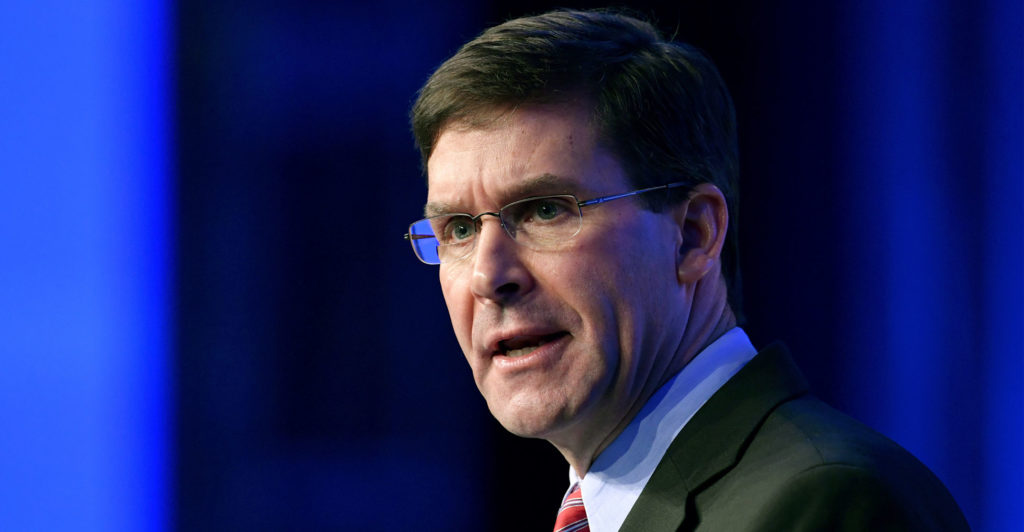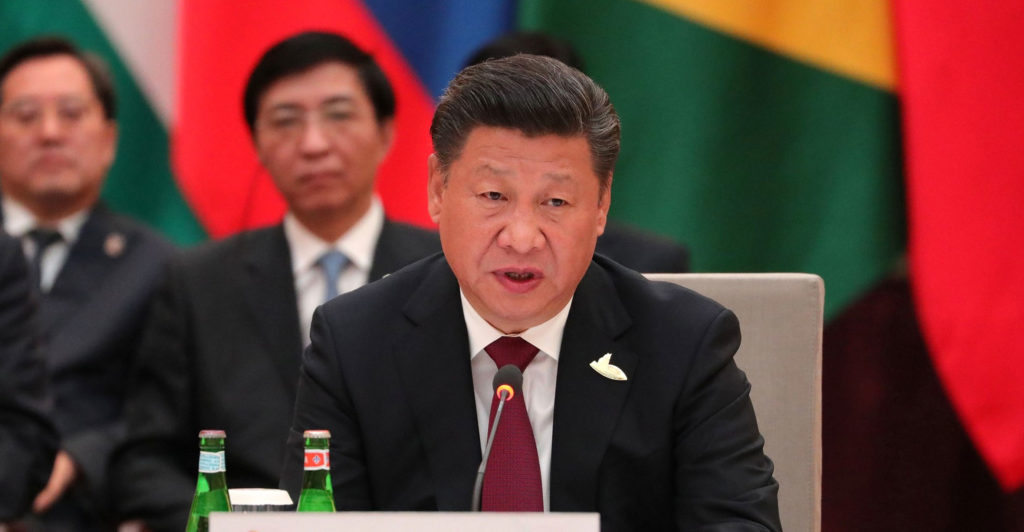
US secretary of defence Mark Esper warned that Beijing is moving further outside the international order and that allies using Chinese technology risk undermining Nato.
Under the leadership of Xi Jinping, China “is heading even faster and further in the wrong direction — more internal repression, more predatory economic practices, more heavy-handedness and, most concerning for me, a more aggressive military posture,” Esper said at the Munich Security Conference on Saturday.
Esper and secretary of state Michael Pompeo dialled up the rhetoric on China after a more junior official said on Friday that there was no threat of retribution against allies that used equipment from Huawei Technologies.
The US has warned that partners using Huawei hardware in their 5G telecommunications networks could put military and intelligence relationships at risk because of the danger of Beijing accessing their communications.
“If you don’t understand the threat and we don’t do something about it, at the end of the day, it could compromise what is the most successful military alliance in history: Nato,” Esper said.
The US and China have been locked in a trade war during the administration of President Donald Trump and are competing for economic influence and military advantage in the Asia-Pacific region. Their inability to cooperate on the coronavirus is one sign of how much the relationship has deteriorated over the past few years.
Chinese foreign minister Wang Yi challenged the US view when he spoke later.
‘Lies’
“All these accusations against China are lies,” he said. “The US does not want to see the rapid development and rejuvenation of China, still less, the success of a socialist country. China’s drive toward modernisation is an inevitable trend of history and will not be held back by any force.”
While Trump often touts his relationship with Xi, competition between the countries has only deepened since they signed their “phase-one” trade deal last month. The US this week charged members of China’s military over one of the biggest data thefts in American history.
The US’s hardline stance over Huawei has strained relations with its European allies, who have found themselves caught up in the power play between China and Washington.
Pompeo sought to push back against the idea that Trump’s America First policy has made the US an unreliable partner, telling the gathering that the demise of transatlantic partnership is “grossly exaggerated”.

He singled out statements from the last few years by senior officials from Canada, Germany and France suggesting that the US is no longer interested in global leadership.
“I’m sure there are a lot of folks here who would call themselves foreign policy realists,” Pompeo said. “Let me give you an idea of what’s real: the West is winning.”
US house speaker Nancy Pelosi, one of Trump’s staunchest critics, was also present. In a rare example of agreement with the president, she, too, warned of the danger of allowing Huawei hardware into mobile networks.
The US raised the stakes in its fight with Huawei this week, charging the telecoms equipment company with racketeering to engage in intellectual property theft. A company representative said the new charges “are without merit and are based largely on recycled civil disputes”.
Pompeo irked China with another speech this week in which he warned US state governors that their pension funds could be investing in companies that help China’s military and repress Muslims in its western Xinjiang region. China’s ambassador to the US, Cui Tiankai, said the accusation is “totally” wrong.
Esper has made the Asia-Pacific region a key focus for the Pentagon since taking office. He wants to redeploy US forces from other areas, including Afghanistan, Iraq and Africa, to confront a growing military competition with China.
The US recognises “this critical challenge as we adapt and prepare our forces to deal with China in this new era of great power competition”, Esper said. — Reported by Glen Carey and Nick Wadhams, (c) 2020 Bloomberg LP




